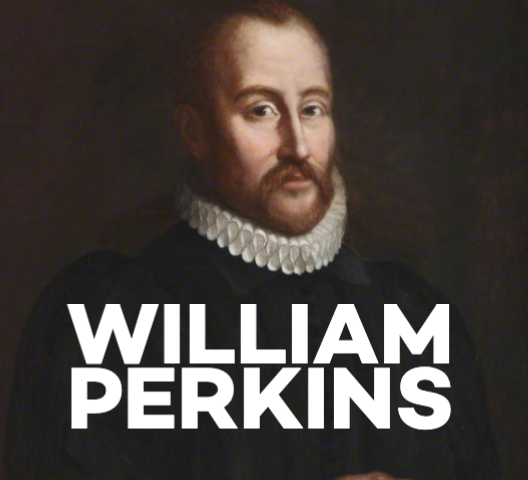“Those families wherein this service of God [family worship] is performed, are (as it were) little churches, yea, even a kind of Paradise upon earth.” William Perkins, Household-Government, in Works 3:670.
While William Perkins (1558-1602) was an adolescent, his name was the talk of the town. Not in a good sense. Though the details are scarce, his personal life was quite sinful, he was addicted to alcohol, and he was seen as the town drunk. One day while a woman was walking with her child she said to her child, “hold your tongue, or I will give you to drunken Perkins yonder.” Overhearing this, the Lord convicted him and then eventually saved him.
Perkins studied at Christ’s College in Cambridge, and he earned his B.A. and M.A. in 1584. After graduating, he stayed in Cambridge as a lecturer at Great St. Andrew’s Church and Christ’s College until his death. Perkins stood out among his contemporaries at the College because he educated his students on theological matters along with finances, morals, and manners. Which was experienced by his students as he catechized them. On Sunday afternoons he counseled to help people who were “spiritually distressed.”
Perkins’s preaching style was simple and plain, but he was considered exceptionally gifted with the ability to reach the common people. One area, in particular, the Lord laid on his heart was to preach to the prisoners in the local jail. One story tells us that a prisoner on death row came up to Perkins (while he was preaching), and knelt before him, not fearing for his death but for the judgment of God. Perkins knelt with the man, they prayed together, and Perkins pointed this man to the Gospel. This prisoner who once had tears of fear knowing his impending judgment, now transitioned to tears of joy knowing his sins were forgiven. The man then stood up, testified the salvation of Christ, it is only by His blood he was forgiven, and faced his sentence with courage knowing he was saved from hell. Keeping this story in mind, it proves that theology does not need to be cold, and it does not have to make one heartless. Yes, Perkins held firmly to the theological convictions of election and the reprobate, but he knew that everyone needed to hear the Gospel and that people are sinners in need of a Savior.
Perkins saw God’s sovereignty and man’s responsibility as “friends.” Puritan scholar, Joel Beeke, notes that his preaching “wed predestinarian preaching with practical, experiential living.” Beeke also notes that “[Perkins] became the principle architect of the Puritan movement.” His writings were outselling those of Calvin, Bullinger, and Beza combined in his day.
Perkins was involved in controversy, he sought to reform the Church of England. The key areas he took a stand with were the celebration of the Lord’s Supper. He did not agree with the minister partaking in the communion meal himself, having people kneel before the sacrament (which he saw as “antichristian”), and turning toward the east during the mass.
In 1594, Perkins married a widow, Timothy Cradock. During their short seven-year marriage, they conceived seven children. Three died in infancy, and the last was born after his passing due to complications from kidney stones in 1602.
Known as “The Elizabethan Puritan,” William Perkins, was counted as the forefather of Puritanism and one of the greatest Puritans that ever lived. Perkins influenced many Puritans in his life such as William Ames (1576-1633), Richard Sibbes (1577-1635), John Cotton (1585-1652), and John Preston (1587-1628). J. I. Packer writes, “No Puritan author save Richard Baxter ever sold better than Perkins, and no Puritan thinker ever did more to shape and solidify historic Puritanism itself.” If you are to read one book by Perkins it would be The Art of Prophesying and the Calling of the Ministry. In this book, Perkins brings to the forefront what needs to be said from the pulpit. This explains that far too many preachers neglect the Gospel and need to go back to the text and invigorate the soul of the congregants through God’s Word. The book is also beneficial to help all Christians read and use the Bible properly.

